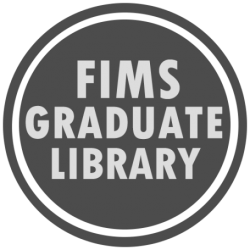Game On! A Workshop on Collecting Games and Developing Board Game Programming in Libraries with Carlie Forsythe
by Sara Clarke
On March 22 we were very lucky to have Carlie Forsythe join us for a workshop on collecting board games and developing board game programming in libraries. Carlie recently completed an MLIS at Western and currently works as a Reference and Research Specialist at Fanshawe College. At Fanshawe, Carlie is responsible for developing the board game collection for Fanshawe’s Library Learning Commons and has also developed board game programming for the college community. In addition to having a wealth of professional expertise in the area, Carlie is an avid gamer and is always enthusiastic about talking about games and gaming.
During the workshop, Carlie made a very compelling case for why recreational play is so important to include in library spaces. Carlie’s research on the topic demonstrates that there are more benefits to board game collections than many of us may realize, including social benefits, skill development, and valuable opportunities for community-building.
Drawing on their experience developing the Library Learning Commons’ game collection, Carlie shared great tips for: pitching the idea of a games collection to management (hint: highlight the ways that adding the collection will align with the library’s core values) and establishing collection development criteria. While the benefits of creating a collection have outweighed the challenges in Carlie’s experience, they noted that creating a game collection and hosting game programming can be difficult when you’re working with limited resources and a lack of volunteers. Although Carlie touched on the potential for libraries to pivot to virtual gaming programming during the pandemic, COVID-19 has undoubtedly been a significant disruption for in-person gaming in libraries.
Another highlight of Carlie’s presentation was their discussion of the different genres of games and the considerations to be aware of when collecting games from each genre. This led to an interesting discussion about the problems with colonialist board games and recommendations for anti-colonial games (Carlie recommended the game Spirit Island as one which challenges the colonialist underpinnings of other games).
Additional Resources from Carlie
Carlie has been very generous to allow us to make the slides from their presentation openly available, as well as their fantastic Board Game Toolkit. This toolkit contains information about collecting different genres of boardgames in libraries, a resource list, and a “Build Your Own Gateway Collection” tool for those who are unsure where to start in developing a new game collection for their library. If you plan on using or citing any of Carlie’s materials, please be sure to credit Carlie as the creator of these materials.
Carlie has also written two articles on all things related to board games and recreational play in libraries for Emerging Library and Information Perspectives (ELIP), the MLIS journal published through the FIMS Graduate Library: Game On! Recreational Play in the Library: Reflections of a Board Game Librarian and Roll for Initiative: A Librarian’s Primer for Collecting Tabletop Role-Playing Games.
Board Games in the FIMS Graduate Library
The FIMS Graduate Library recognizes the importance of recreational play in libraries and has developed a collection of over 60 games. This collection includes a varied assortment of games, including everything from classic games and card games (e.g., Love Letter), to a new Inuit-designed strategy game, Nunami, and the all-to-timely cooperative game Pandemic. A list of the games in our collection can be found on our website. FIMS Graduate students, faculty, and staff are welcome to play these games in the library or to borrow them to play at home. Please email us at fimslib@uwo.ca or visit us in the library if you have any questions about these games.
